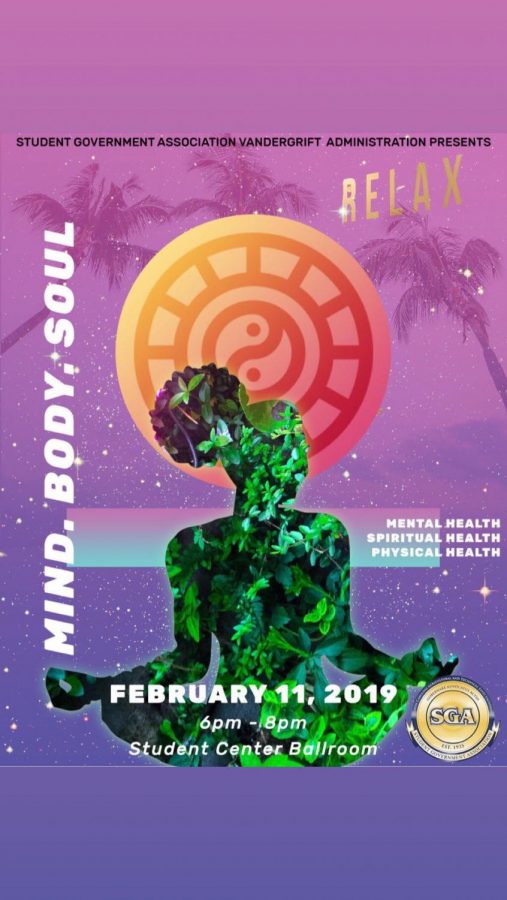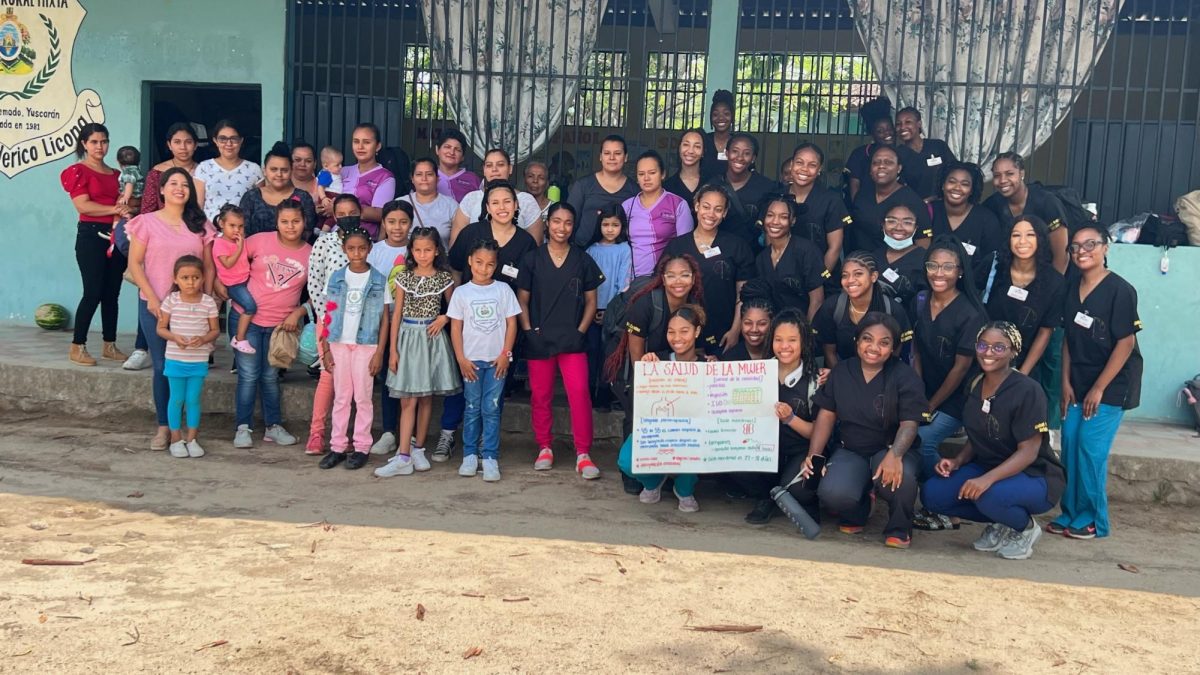The Association of Black Psychologists and SGA hosted the first of nine events to take place during Black History Month, “Mind, Body, and Soul.”
SGA has also partnered with other campus organizations including The National Association for the Advancement of Colored People and Richard B. Harrison Players.
The “Mind, Body, and Soul” program was held in the New Student Center Ballroom on Feb. 11, 2019 from 6pm-8pm.
The Association of Black Psychologists (ABpsi), which includes psychology students and psychology professors created the Mind, Body, Soul panel for questions on race influence, anxiety and the idea of transracial identity.
Black mental health is the comprehension of mental health for all of those who are in the pan- Africanism spectrum, according to Mr. Tyronne James, an adjunct psychology professor.
James gave a presentation on defining black mental health and senior psychology students, Kyle Barrentine and Korinthia Dixon discussed traumas black individuals endure that may affect their mind, body and soul.
According to the facilitators of the program, due to the trauma of slavery and its effects on our history and genetics, black people are seen to experience mental health much different than those of other ethnicities.
“It’s important for us to create a safe space for us to be able to talk to each other,” said Julian Cuffie, senior history professional student and SGA vice president of external affairs.
#BlackMentalHealthMatters pic.twitter.com/EEFgAexAiS
— NCAT SGA (@ncatsga) February 12, 2019
Poor mental health can accompany many disorders. Depression, anxiety, stress are examples of this.
About 50 percent of college student have experienced a kind of depression at some point, and 300 million people worldwide suffer from depression, according to the World Health Organization.
Also, suicide is the second leading cause of death for those between the age of 10 and 34, according to the National Institute of mental health.
For African Americans, these statistics are even higher due to lack of conversation and acknowledgement of mental health, which was explained by the panel.
Ignoring traumas, anxieties and depressive episodes may lead to unhealthy ways to cope including excessive food and drink consumption. Mental health can play a role on the physical diseases found in the black community.
Hypertension is a state of great psychological stress found in 41 percent of African Americans which lead to these diseases, according to Mayo Clinic.org. Health problems including obesity and high blood pressure are found at high rates within the black community.
Some warning signs of poor mental health talked about at the program are as followed
- Feeling very sad or withdrawn for more than two weeks
- Overwhelming fear for no reason with a racing heart or fast breathing
- Severe mood swings
- Not eating and/or sleeping
- Difficulty in concentrating
Through the balancing of academics, social life and controversial events that may arise, students are encouraged to find different methods to maintain their mental health.
For those that are having a hard time, N.C. A&T has counseling services on campus. Students can take advantage of these resources to have a healthy mind, body and soul.
THANK YOU TO EVERYONE WHO CAME OUT TONIGHT!!
May your Mind, Body, and Soul be lifted and free after tonight🙏🏾#BlackMentalHealthMatters #NCAT pic.twitter.com/PbWfMbmwpS
— NCAT SGA (@ncatsga) February 12, 2019







